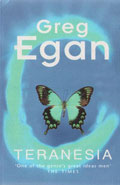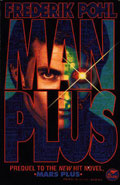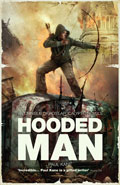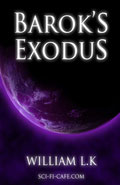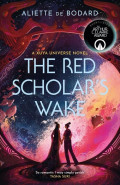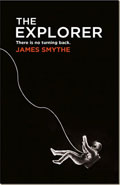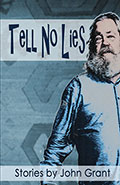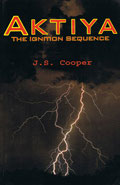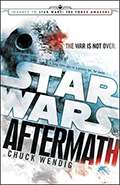The Telling
By Ursula K Le Guin
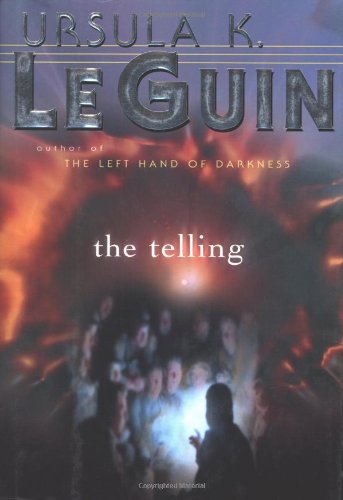
- The Telling
-
Author: Ursula K Le Guin
-
Publisher: Harcourt
- ISBN: 9780151005673
- Published: September 2000
- Pages: 272
- Format reviewed: Hardback
- Review date: 03/03/2019
- Language: English
What is religion?
Most of us aren’t used to contemplating that question too hard. The answer seems self-evident. In the world around us now, we have Christianity, Judaism, and Islam as the big three monotheistic religions. India and East Asia provide numerous examples of the polytheistic variety. It might be tempting to fall back on some seeming truism, such as, “all religions are about adherence to a set of rules,” but stray outside of those big three monotheistic religions, and you’ll find a number of counterexamples to the most obvious-seeming axioms.
Dictionary definitions further prove this point. “Religion,” omnipresent Google says, is “the belief in and worship of a superhuman controlling power.” Sorry, Google, but what do you make of Shinto, the nature-worship religion of Japan? This definition won’t work, either.
The Telling by Ursula K. Le Guin is an exploration of religion. Not what it is in our real world, not a critique of any particular incarnation of, but what it, as a practice and human experience, can be, what it is capable of. Le Guin handles this potentially fraught topic masterfully.
Sutty is an Observer of the Ekumen, a galactic association of human worlds, whose goal is to visit other human worlds, learn about them, and eventually incorporate new members from among them. Sutty, who grew up on Earth (a member world of the Ekumen), is sent at the novel’s outset to a planet called Aka.
Earth and Aka are presented, socially, as mirror worlds. At this point in Le Guin’s future timeline, Earth is embroiled in the imploding reign of the Unist fundamentalist religion/political organization. Those familiar with Le Guin’s Planet of Exile will recognize the Unists, who, in that novel are in total of control of the planet. By Sutty’s time, the Unists are declining in power, and a number of regions lie outside of their control entirely, such as Vancouver, British Columbia, where Sutty grew up.
Aka, on the other hand, bears certain similarities to the real present of Western, capitalist countries. Akan politics is run entirely by an entity called the Corporation. The direct translation of the Akan word for “citizen” is “producer-consumer.” The Corporation’s stance toward “the old religion” of Aka is that it is backward, anti-intellectual, and oppressive. Instead, producer-consumers are to put their faith in the relentless pursuit of scientific progress, which, on Aka, is approaching space-flight capabilities for the first time.
Aka differs from real world Earth in its direct oppression of the old religion. Religious practices are illegal. The corporate government of Aka even changed the entire planet’s writing system and burned all the old books in an attempt to obliterate the culture surrounding the Aka’s old religion.
Sutty and her fellow Observer on Aka have been isolated to the capital city of Dovza at the novel’s open. The Corporation does not let them leave, for fear that members of the Ekumen might come into contact with “evil” influences; the old religion, it seems, still thrives in backwater parts of world. In the first chapter, Sutty will inexplicably be given permission to leave Dovza and do her work in a rural region.
Just as Earth is contrasted against Aka, Sutty is contrasted against an agent of the Corporation named Yara, whom Sutty meets shortly after leaving Dovza. The two act as foils for exploring the issue of what religion is really about.
Belief and Reason
At a glance, one might find it easy to fall into a kind of simplistic thinking about the two cultures presented: “fundamentalist Earth Unists bad; scientific and progressive Akan Corporation good.” But Le Guin doesn’t make it nearly that simple. For all of their fast-pace scientific progress, life in Dovza city is presented as sterile, culturally homogenous, and aesthetically decrepit. The excision of the old writing system, the goal of which was to destroy the old religious power structures, took with it all old stories. Along with the religion disappeared Aka’s cultural heritage entirely.
When Sutty arrives in the rural city of Okzat-Ozkat, it is only here that she is capable of hearing stories, all of which have moved into an underground network of individuals who are secretly keeping the ancient practices alive, including the most important one of all, the practice central to the entire Akan belief system—the Telling.
The Telling is not much more than what its name implies. It is the telling of stories. Sutty discovers no pantheon, no deities of any kind, nor even any rules or proscriptions. Simply storytelling. Through this lens, the reader can see both fundamentalist Earth and neoliberal Aka as mirror images of fundamentalism rather than a good/evil dichotomy. Unist culture is telling itself a story about the supposed rightness of “one true god.” Akan culture is telling itself a story about the supposed rightness of “the march of scientific progress.”
Sutty and Yara are both products of their respective cultures, but each is in conflict with that culture. Into that mix, Le Guin throws a reason for each to be in conflict with the other: Sutty’s job as an Observer is to learn as much about Akan culture as she can; Yara’s job is to suppress elements of Akan culture that the Corporation deems undesirable.
Ways of Being in the World
I could write at length about the structural elegance of The Telling. Suffice it to say, there is a surface structure, which is about Sutty’s exploration of the religion of the Telling, and a substructure, which is about Sutty’s personal growth and development as a human being. Her conflict with Yara bridges the two. Le Guin accomplishes this layering with extraordinary skill and finesse.
Sutty’s exploration of the disenfranchised, underground religion reveals a number of scared, but passionate, intelligent, and proud people, who are convinced of the inherent value of their troves of stories, even though they live in a world that tells them those stories are dangerous and evil. The Telling is hostile to all forms of dogmatic thinking, whether they insist that deity, a political structure, or an economic mode is the “one true way.”
The way one reconciles oneself with one’s world is the only central concept of the Telling that Sutty can identify. Its stories are scattered; there is no canon. Its adherents merely tell; and most importantly, they also listen. The purest form of this is two individuals at odds with one another, who, through telling one another stories and listening, come to understand a way of being in the world they hadn’t considered prior. Each then understands how they can be in the world better. This, I think, is the true core of religion that Le Guin suggests.
Concluding Thoughts
The political landscape of Aka creates the situation where we can see a religion with all its pomp, extravagance, embedded politics, and spectacle stripped away. A religion in hiding is a religion reduced to its core. By contrasting Akan religion with Earth Unism, which hints at the real world’s big three monotheistic religions, The Telling provides a lens for seeing religion and belief in an entirely different way, one that is potentially not in conflict with reason and science at all.
Le Guin also gives us a portrait of a woman coming to terms with herself and her place in the world. The way in which Le Guin weaves both strands together is particularly deft.
My one niggling qualm with the novel is a matter that I think it is much easier to see today than perhaps at the time of the novel’s publication, which was almost two decades prior to this review. The novel presents a not-insignificant portion of the Okzat-Ozkat youth as deeply interested in and invested in the old religion. This, to me, is much too optimistic. As we can see from our own incarnation of more-or-less corporate governance, the sterile confections of mass consumer “culture” have much more power over the young than Le Guin’s presentation suggests. The character of starry-eyed Akidan, who dreams of one day being a maz (the closest equivalent would be something like “religious scholar/storyteller”) at age fourteen, is not, in this reader’s opinion, realistic, given the presentation of Akan culture as a whole.
The Telling is a superb novel. It is efficient, but also elegant. As I have come to expect from Le Guin, the style, while ostensibly plain, contains an abundant depth of substance. Its topics are rigorously explored. The society of Aka is immaculately detailed. I personally love it when the author provides the kind of linguistic details that provide cultural insight, such as the word for “citizen” being “producer-consumer.” I could cite at least a dozen other similar examples.
The Telling may not one of Le Guin’s better known novels, but in this reader’s opinion, it much deserves to be.
Written on 3rd March 2019 by Matt Buscemi.
